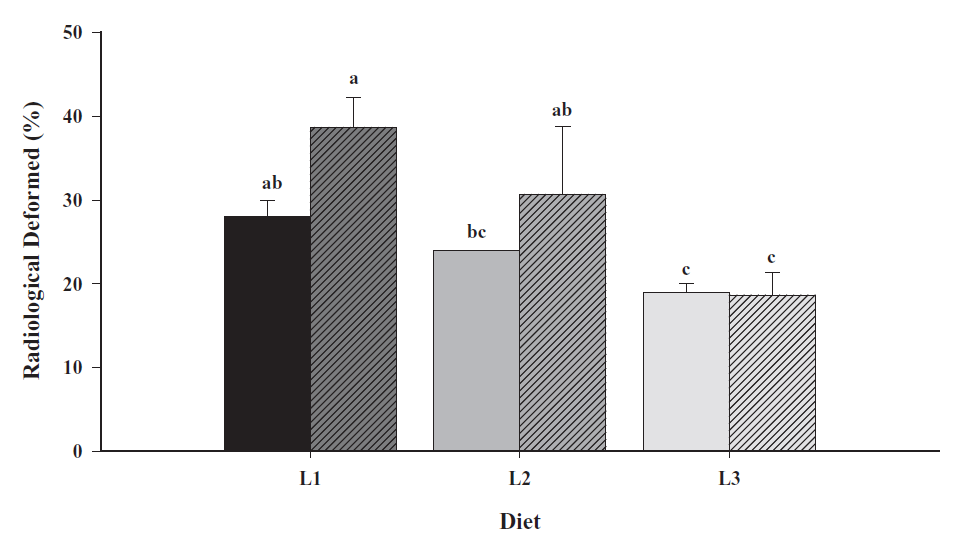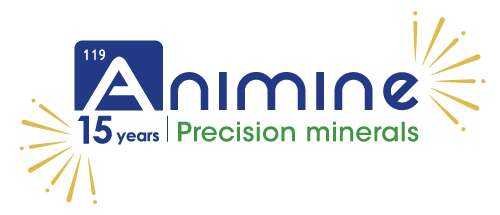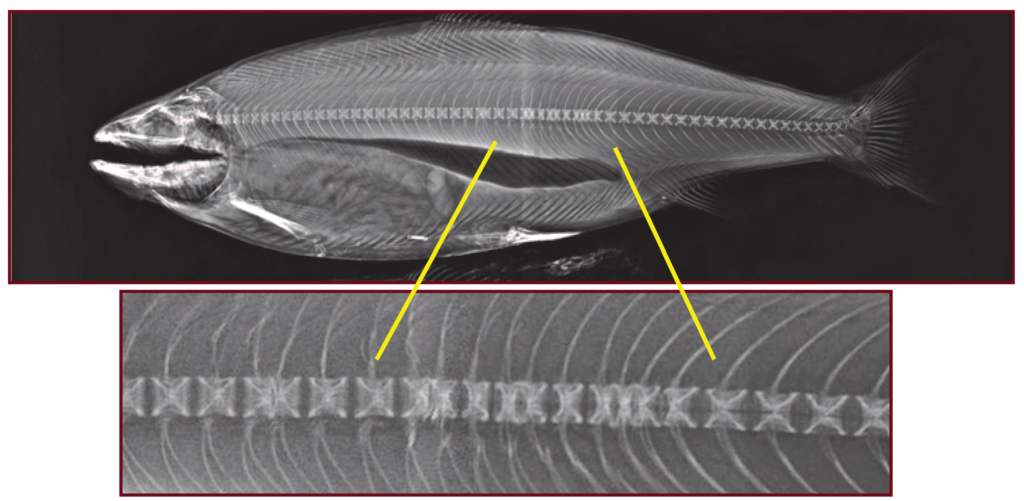> Research & Science
Zinc for fishes fed with plant based diets
Marine ingredients like fish meal and fish oil are traditionally used in aquaculture feeds. Fish meal has a high content of digestible protein, a balanced amino acid profile, and appreciable quantities of fatty acids, minerals and vitamins. It is produced from small, pelagic, oceanic fish (menhaden, herring, anchovies, sardines) or from the inedible portions of food fish. However, due to the decreasing availability of marine resources from fisheries capture, fish meal is progressively replaced by plant-based proteins. Because of their high concentration in phytate, vegetal proteins may reduce the bioavailability of macro and micro minerals. As the most abundant micromineral in the vertebrae of many teleost fish species, zinc is an essential trace element for skeletal mineralization. Fishes fed low Zn diets show deformities of the vertebral bodies.
Increasing levels of mineral supplementation have been tested on Atlantic salmons, from parr to harvest. Fish meal was initially restricted to 15% in freshwater, decreasing to 5% in seawater. Trace minerals were incorporated well above NRC levels (Zn requirement defined at 37 mg/kg, NRC 2011). Experimental feeds had analysed zinc concentrations of 94, 156 and 330 mg/kg in L1, L2, L3, respectively. Improving zinc status, measured with whole body zinc concentration, reduced spinal pathology and progression as post-smolts.

Source: Aquaculture Volume 528, 15 November 2020, 735551

